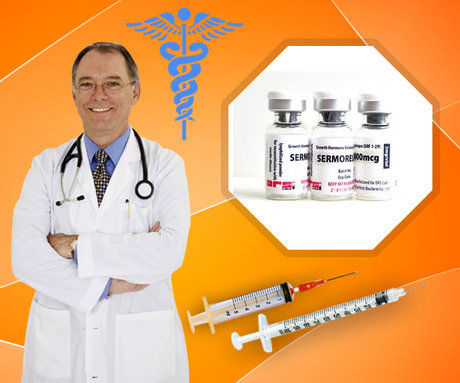Introduction
As American males age, they often encounter a variety of physiological changes, one of which includes alterations in erectile function. Soft erections, a condition where the penis does not achieve full rigidity, can be a source of concern and impact quality of life. This article delves into the intricate relationship between age-related hormonal changes and their influence on erectile function, providing a comprehensive overview for American men seeking to understand and address this issue.
The Role of Hormones in Male Sexual Health
Hormones play a pivotal role in male sexual health, with testosterone being the most prominent. Testosterone is essential for libido, erectile function, and overall sexual performance. As men age, a natural decline in testosterone levels occurs, a phenomenon known as andropause or late-onset hypogonadism. This decline can lead to a variety of symptoms, including reduced sexual desire and softer erections.
Age-Related Hormonal Changes
The aging process is accompanied by a gradual decrease in testosterone production. Studies indicate that testosterone levels may decrease by approximately 1% per year after the age of 30. This decline can be exacerbated by factors such as obesity, chronic illness, and certain medications. Additionally, other hormones such as estrogen and cortisol can also influence sexual function. An increase in estrogen levels relative to testosterone can contribute to erectile difficulties, while elevated cortisol levels, often associated with stress, can further complicate the issue.
Mechanisms Linking Hormonal Changes to Soft Erections
The connection between hormonal changes and soft erections is multifaceted. Testosterone is crucial for the production of nitric oxide, a key molecule involved in the relaxation of penile smooth muscle, which is necessary for achieving and maintaining an erection. Lower testosterone levels can lead to reduced nitric oxide production, resulting in less effective erections. Furthermore, hormonal imbalances can affect the vascular system, which is integral to erectile function, and can lead to decreased blood flow to the penis.
Clinical Implications and Diagnostic Approaches
For American males experiencing soft erections, a thorough evaluation by a healthcare provider is essential. This evaluation should include a detailed medical history, physical examination, and possibly blood tests to assess hormone levels. It is important to differentiate between hormonal causes and other potential factors such as vascular disease, neurological issues, or psychological factors. Once a hormonal imbalance is identified, treatment options can be explored.
Treatment Strategies for Hormonal Imbalances
Addressing hormonal imbalances can involve various strategies. Hormone replacement therapy (HRT) is a common approach, where testosterone is administered to restore levels to a more youthful state. This can be done through injections, gels, patches, or pellets. However, HRT is not suitable for everyone and should be carefully considered in consultation with a healthcare provider due to potential side effects and risks.
Lifestyle modifications can also play a significant role in managing hormonal changes. Regular exercise, a balanced diet, and stress management techniques can help improve overall hormonal health. Additionally, certain supplements and medications may be recommended to support testosterone levels and enhance erectile function.
Conclusion
Understanding the link between age-related hormonal changes and soft erections is crucial for American males seeking to maintain their sexual health as they age. By recognizing the role of hormones such as testosterone and addressing imbalances through medical and lifestyle interventions, men can take proactive steps to improve their quality of life. It is important for individuals to engage in open discussions with their healthcare providers to develop a personalized approach to managing this common yet often overlooked aspect of aging.
Contact Us For A Fast And Professional Response

- Enhancing Male Performance: The Role of Meditation and Mindfulness in Overcoming Soft Erections [Last Updated On: February 22nd, 2025] [Originally Added On: February 22nd, 2025]
- Demystifying Soft Erections: A Comprehensive Guide to Overcoming the Obstacle [Last Updated On: February 25th, 2025] [Originally Added On: February 25th, 2025]
- Understanding the Riddle of Elasticity: The Molecular Dynamics Behind Soft Erections [Last Updated On: February 26th, 2025] [Originally Added On: February 26th, 2025]
- Forging a New Paradigm: Celebrating Healthy Masculinity and Soft Erections [Last Updated On: February 27th, 2025] [Originally Added On: February 27th, 2025]
- Enhancing Potent Virility: Unleashing the Power of Lifestyle Changes for Elevated Erectile Strength [Last Updated On: February 28th, 2025] [Originally Added On: February 28th, 2025]
- Unvoiced Battles: Navigating the Challenges of Erectile Dysfunction [Last Updated On: February 28th, 2025] [Originally Added On: February 28th, 2025]
- The Intricate Dance of Mind and Body: Delving into the Complex Relationship Between Stress and Male Sexual Health [Last Updated On: March 1st, 2025] [Originally Added On: March 1st, 2025]
- Addressing the Elephant in the Room: The Medical Science Behind Soft Erections [Last Updated On: March 2nd, 2025] [Originally Added On: March 2nd, 2025]
- Enhancing Erectile Function Through Exercise: Understanding the Impact of Physical Activity on Sexual Health and Well-being [Last Updated On: March 3rd, 2025] [Originally Added On: March 3rd, 2025]
- Improving Erectile Function Through Diet and Lifestyle Choices [Last Updated On: March 4th, 2025] [Originally Added On: March 4th, 2025]
- Linking Sleep Quality and Erectile Health in American Men: Strategies for Improvement [Last Updated On: March 5th, 2025] [Originally Added On: March 5th, 2025]
- Managing Soft Erections in Aging Men: Causes, Lifestyle Changes, and Medical Options [Last Updated On: March 5th, 2025] [Originally Added On: March 5th, 2025]
- Understanding Erectile Dysfunction: Causes, Impact, and Management Strategies [Last Updated On: March 6th, 2025] [Originally Added On: March 6th, 2025]
- Optimizing Testosterone and Estrogen for Male Sexual Health: Hormonal Balance Strategies Explained [Last Updated On: March 7th, 2025] [Originally Added On: March 7th, 2025]
- Enhancing Male Sexual Health: The Role of Weight Loss in Combating Soft Erections [Last Updated On: March 8th, 2025] [Originally Added On: March 8th, 2025]
- Enhancing Erectile Function: Unveiling Vascular Health Strategies for Improved Sexual Performance [Last Updated On: March 8th, 2025] [Originally Added On: March 8th, 2025]
- The Comprehensive Guide to Men's Health: Enhancing Erectile Function Holistically [Last Updated On: March 9th, 2025] [Originally Added On: March 9th, 2025]
- Debunking Common Misconceptions: The Truth About Soft Erections in American Men [Last Updated On: March 14th, 2025] [Originally Added On: March 12th, 2025]
- Navigating the Impact of Medications on Male Sexual Health: Understanding Drug-Induced Erectile Challenges [Last Updated On: March 13th, 2025] [Originally Added On: March 13th, 2025]
- Stress and Soft Erections: Strategies for American Males to Improve Sexual Health [Last Updated On: March 15th, 2025] [Originally Added On: March 15th, 2025]
- Vitamins and Minerals: Enhancing Erection Quality in American Males [Last Updated On: March 17th, 2025] [Originally Added On: March 17th, 2025]
- Herbal Remedies for Enhancing Male Sexual Health and Combating Soft Erections [Last Updated On: March 17th, 2025] [Originally Added On: March 17th, 2025]
- Counseling's Role in Addressing Psychological Impacts of Soft Erections in American Men [Last Updated On: March 18th, 2025] [Originally Added On: March 18th, 2025]
- Smoking's Impact on Erections: Recovery and Improvement Through Cessation [Last Updated On: March 19th, 2025] [Originally Added On: March 19th, 2025]
- Lifestyle Strategies for American Men to Enhance and Maintain Strong Erections [Last Updated On: March 19th, 2025] [Originally Added On: March 19th, 2025]
- Soft Erections: Couples' Guide to Understanding and Overcoming ED Together [Last Updated On: March 20th, 2025] [Originally Added On: March 20th, 2025]
- Understanding Soft Erections: Causes, Impacts, and Holistic Treatment Approaches for Men [Last Updated On: March 20th, 2025] [Originally Added On: March 20th, 2025]
- Soft Erections in Young Men: Causes, Solutions, and Holistic Approaches [Last Updated On: March 20th, 2025] [Originally Added On: March 20th, 2025]
- Diagnostic Approaches to Soft Erections: Empowering American Males [Last Updated On: March 21st, 2025] [Originally Added On: March 21st, 2025]
- Alcohol's Impact on Erection Quality: Balancing Consumption for Optimal Sexual Health [Last Updated On: March 21st, 2025] [Originally Added On: March 21st, 2025]
- Pelvic Floor Exercises: Enhancing Erection Quality and Sexual Health in American Men [Last Updated On: March 21st, 2025] [Originally Added On: March 21st, 2025]
- Soft Erections Linked to Anxiety and Depression: Management Strategies for American Males [Last Updated On: March 21st, 2025] [Originally Added On: March 21st, 2025]
- Workplace Stress and Its Impact on Erectile Dysfunction in American Men [Last Updated On: March 22nd, 2025] [Originally Added On: March 22nd, 2025]
- Digital Health Monitoring: Managing Soft Erections with Apps and Wearables [Last Updated On: March 23rd, 2025] [Originally Added On: March 23rd, 2025]
- Exploring Non-Pharmacological Solutions for Enhancing Male Erection Quality [Last Updated On: March 23rd, 2025] [Originally Added On: March 23rd, 2025]
- PDE5 Inhibitors: Enhancing Erection Firmness and Sexual Confidence in American Males [Last Updated On: March 23rd, 2025] [Originally Added On: March 23rd, 2025]
- Superfoods Boost Vascular Health, Enhance Male Sexual Function [Last Updated On: March 23rd, 2025] [Originally Added On: March 23rd, 2025]
- Cardiovascular Health's Impact on Erectile Function in American Males [Last Updated On: March 24th, 2025] [Originally Added On: March 24th, 2025]
- Biofeedback Therapy: A Non-Invasive Solution for Soft Erections in Men [Last Updated On: March 24th, 2025] [Originally Added On: March 24th, 2025]
- Understanding Soft Erections: Causes, Impacts, and Management Strategies for American Men [Last Updated On: March 24th, 2025] [Originally Added On: March 24th, 2025]
- Understanding Soft Erections vs. Erectile Dysfunction: A Guide for American Men [Last Updated On: March 24th, 2025] [Originally Added On: March 24th, 2025]
- Nitric Oxide's Role in Enhancing Erections: Strategies for American Males [Last Updated On: March 24th, 2025] [Originally Added On: March 24th, 2025]
- Managing Soft Erections: Preparation, Questions, and Treatment Options for ED [Last Updated On: March 25th, 2025] [Originally Added On: March 25th, 2025]
- Navigating Soft Erections: Impact, Intimacy, and Solutions for Couples [Last Updated On: March 25th, 2025] [Originally Added On: March 25th, 2025]
- Soft Erections: Economic Impact and Quality of Life in American Males [Last Updated On: March 25th, 2025] [Originally Added On: March 25th, 2025]
- Soft Erections Linked to Metabolic Syndrome: Impact and Management for American Men [Last Updated On: March 25th, 2025] [Originally Added On: March 25th, 2025]
- Environmental Toxins and Soft Erections: Mechanisms and Mitigation Strategies [Last Updated On: March 25th, 2025] [Originally Added On: March 25th, 2025]
- Strategies for American Men to Rebuild Self-Esteem Amid Soft Erections [Last Updated On: March 25th, 2025] [Originally Added On: March 25th, 2025]
- Physical Therapy: A Holistic Approach to Treating Soft Erections and ED [Last Updated On: March 25th, 2025] [Originally Added On: March 25th, 2025]
- Sleep Disorders and Soft Erections: Impact and Management Strategies for American Men [Last Updated On: March 25th, 2025] [Originally Added On: March 25th, 2025]
- Alternative Medicine and Acupuncture: Enhancing Erectile Health in American Males [Last Updated On: March 25th, 2025] [Originally Added On: March 25th, 2025]
- Innovative Technologies Revolutionizing Erectile Dysfunction Treatment and Diagnostics [Last Updated On: March 25th, 2025] [Originally Added On: March 25th, 2025]
- Genetic Predisposition to Soft Erections: Exploring the Role of Genes in ED [Last Updated On: March 26th, 2025] [Originally Added On: March 26th, 2025]
- Obesity and Soft Erections: Weight Management's Role in Enhancing Sexual Health [Last Updated On: March 26th, 2025] [Originally Added On: March 26th, 2025]
- Mindfulness Techniques for Managing Soft Erections in American Men [Last Updated On: March 26th, 2025] [Originally Added On: March 26th, 2025]
- Innovative Devices for Enhancing Erections: Vacuum Pumps and Beyond [Last Updated On: March 26th, 2025] [Originally Added On: March 26th, 2025]
- Combat Soft Erections: Exercise Boosts Sexual Health in Sedentary American Males [Last Updated On: March 26th, 2025] [Originally Added On: March 26th, 2025]
- Endocrine System's Role in Male Erection Quality and Hormonal Balance [Last Updated On: March 26th, 2025] [Originally Added On: March 26th, 2025]
- Soft Erections: Understanding ED, Embracing Vulnerability, and Reclaiming Sexual Confidence [Last Updated On: March 26th, 2025] [Originally Added On: March 26th, 2025]
- Behavioral Strategies to Overcome Soft Erections and Improve Sexual Health [Last Updated On: March 26th, 2025] [Originally Added On: March 26th, 2025]
- Overcoming Soft Erections: Real Success Stories and Effective Strategies for American Males [Last Updated On: March 26th, 2025] [Originally Added On: March 26th, 2025]
- Medication-Induced Erectile Dysfunction: Causes, Management, and Lifestyle Solutions [Last Updated On: March 26th, 2025] [Originally Added On: March 26th, 2025]
- Stress Management Techniques to Enhance Erectile Function in American Males [Last Updated On: March 27th, 2025] [Originally Added On: March 27th, 2025]
- Redefining Masculinity: Embracing Sexual Confidence Beyond Soft Erections [Last Updated On: March 27th, 2025] [Originally Added On: March 27th, 2025]
- Erection Physiology: Understanding and Addressing Soft Erections in American Males [Last Updated On: March 27th, 2025] [Originally Added On: March 27th, 2025]
- Chronic Inflammation's Impact on Male Sexual Health and Erectile Function [Last Updated On: March 28th, 2025] [Originally Added On: March 28th, 2025]
- Soft Erections and Prostate Health: A Vital Connection for American Males [Last Updated On: March 29th, 2025] [Originally Added On: March 29th, 2025]
- Understanding and Managing Soft Erections: Causes, Treatments, and Breaking Stigma [Last Updated On: March 29th, 2025] [Originally Added On: March 29th, 2025]
- Cardiovascular Exercise Boosts Erection Quality in American Males with Soft Erections [Last Updated On: March 29th, 2025] [Originally Added On: March 29th, 2025]
- Enhancing Sexual Stamina and Managing Soft Erections: Advanced Techniques and Strategies [Last Updated On: March 30th, 2025] [Originally Added On: March 30th, 2025]
- Managing Soft Erections: Causes, Diagnosis, and Effective Treatment Options for American Men [Last Updated On: March 31st, 2025] [Originally Added On: March 31st, 2025]
- Lifestyle Changes to Improve Erection Quality and Combat ED [Last Updated On: April 1st, 2025] [Originally Added On: April 1st, 2025]
- Nerve Health's Role in Enhancing Erectile Function: Strategies for American Men [Last Updated On: April 2nd, 2025] [Originally Added On: April 2nd, 2025]
- Exploring Soft Erections: Advances in Treatment and Research Frontiers [Last Updated On: April 2nd, 2025] [Originally Added On: April 2nd, 2025]
- Soft Erections: Causes, Treatments, and Impact on American Men's Intimacy [Last Updated On: April 4th, 2025] [Originally Added On: April 4th, 2025]
- Navigating Soft Erections: A Guide for American Males to Foster Open Relationship Dialogue [Last Updated On: April 5th, 2025] [Originally Added On: April 5th, 2025]
- Vascular Health's Role in Erections: Insights and Improvement Strategies for American Males [Last Updated On: April 7th, 2025] [Originally Added On: April 7th, 2025]
- Relationship Dynamics and Soft Erections: Insights for American Males with ED [Last Updated On: April 8th, 2025] [Originally Added On: April 8th, 2025]
- Soft Erections: Beyond the Bedroom - A Holistic Impact on American Men's Lives [Last Updated On: April 8th, 2025] [Originally Added On: April 8th, 2025]
- Cortisol's Impact on Erectile Function: Stress Management for Sexual Health [Last Updated On: April 9th, 2025] [Originally Added On: April 9th, 2025]
















